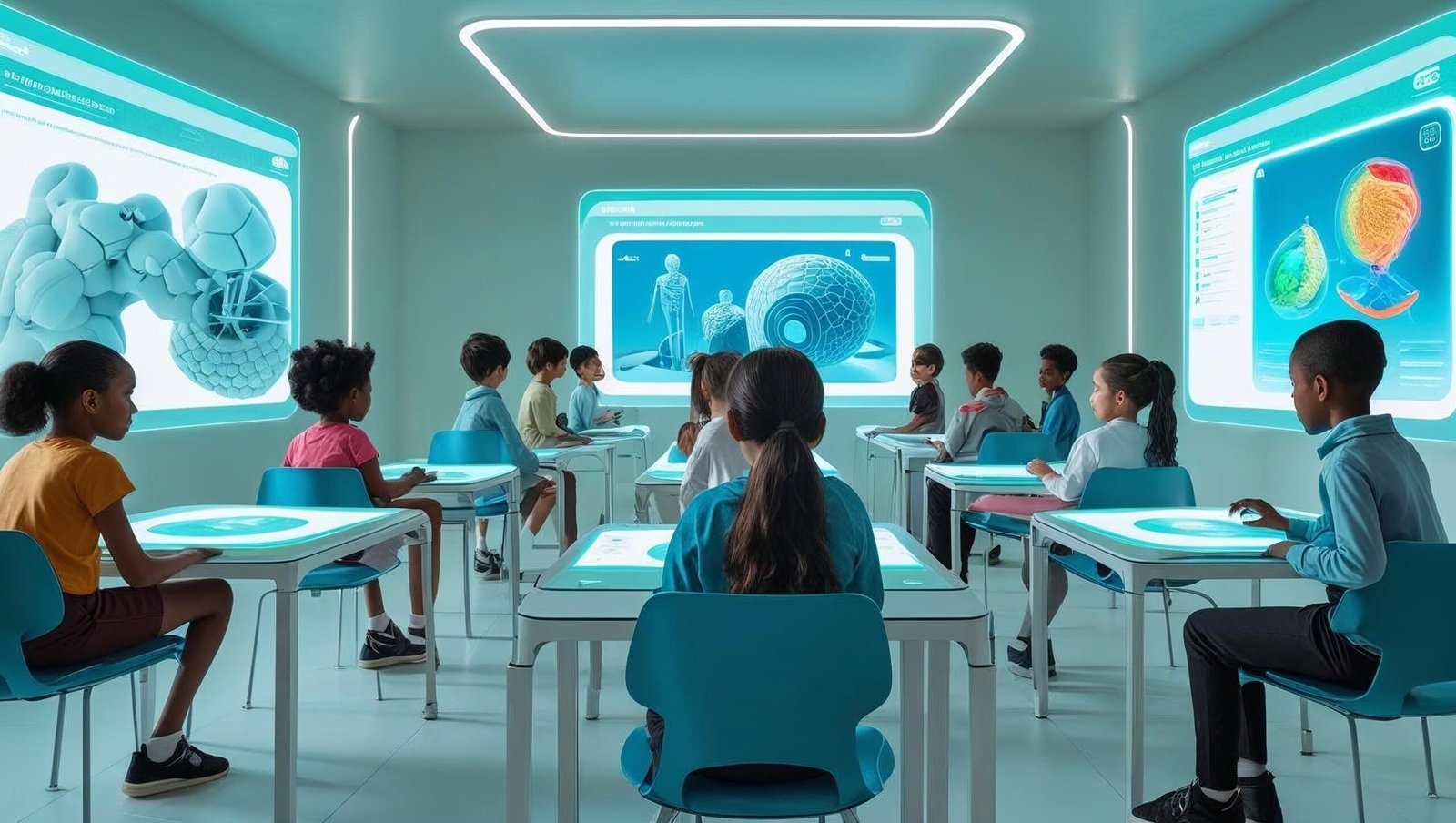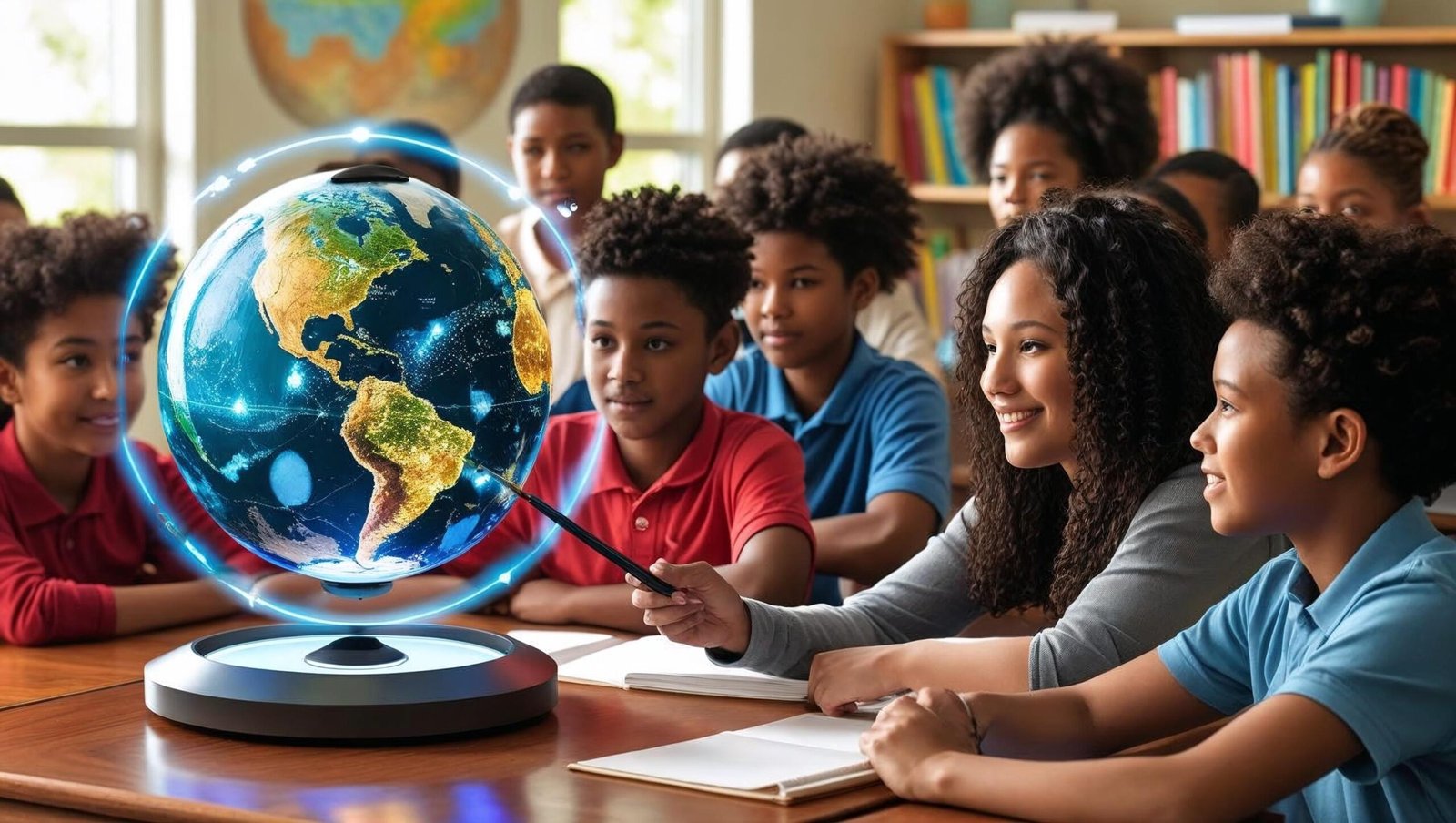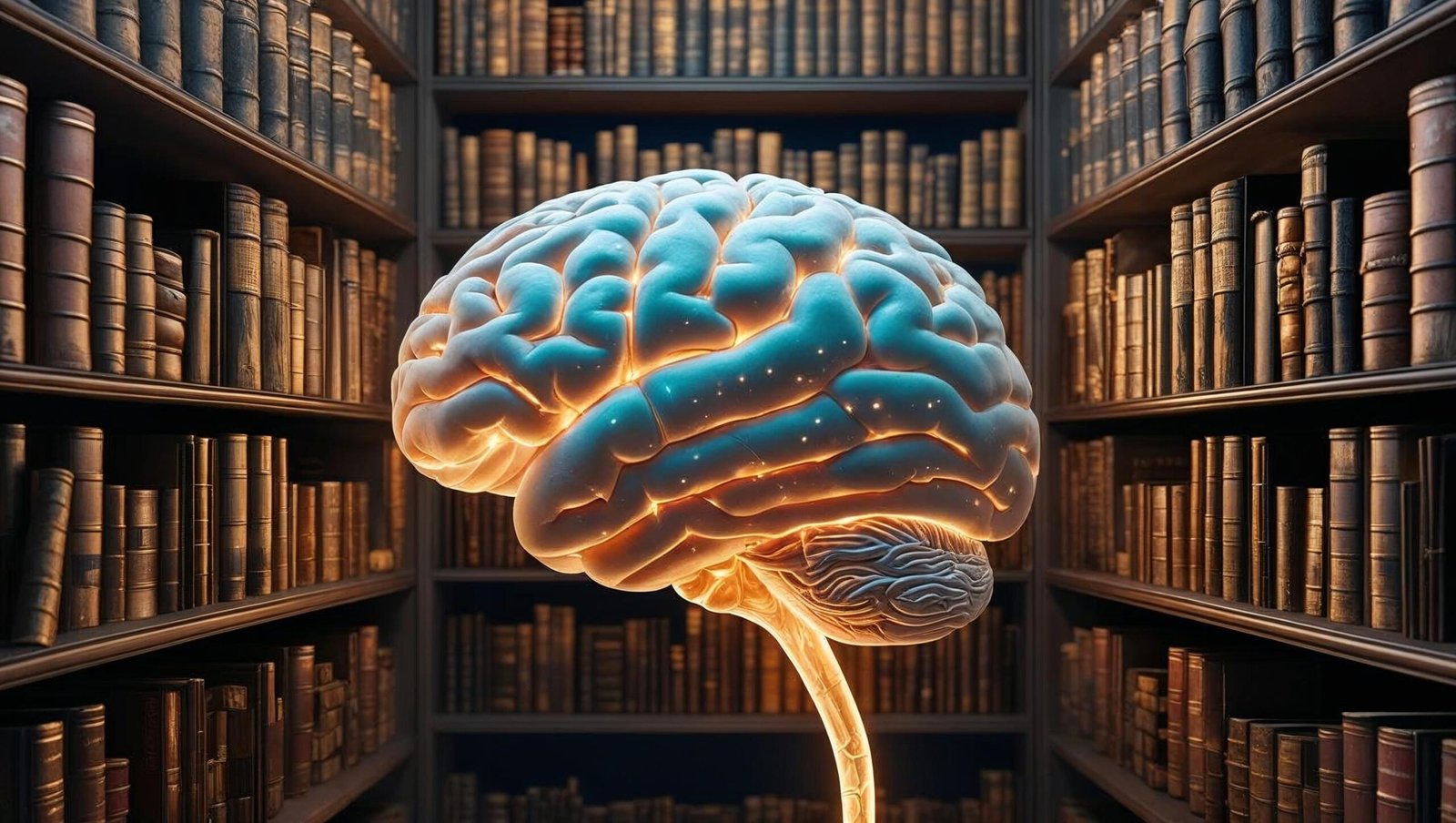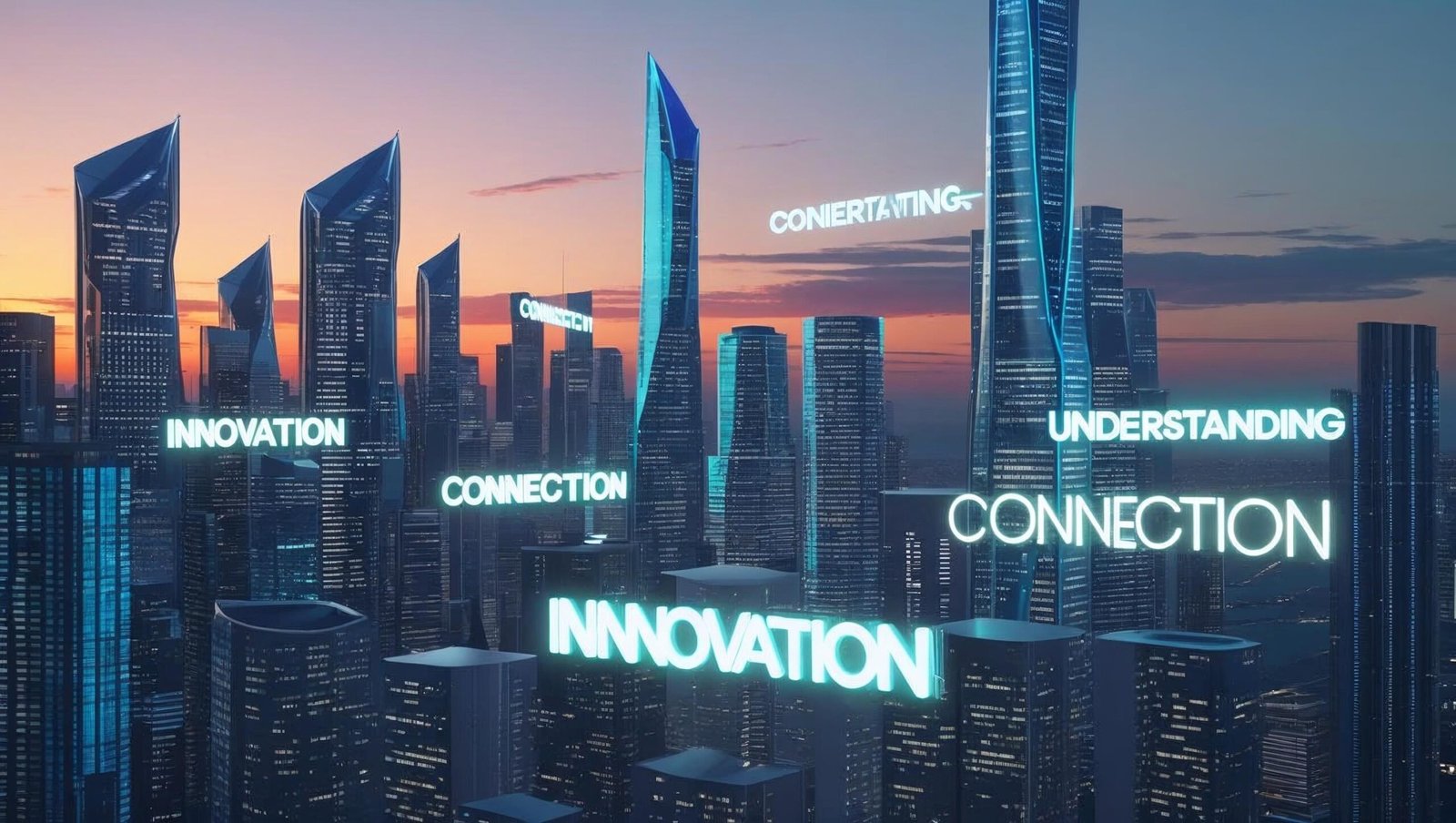Brave New Words – 7 Powerful Lessons That Will Transform Education and Inspire Hope
Introduction
Books that truly make a difference are rare. They question conventions, break barriers, and set the stage for a new way of living and thinking. Brave New Words by Salman Khan is one such book. Written by the visionary founder of Khan Academy, this book lays out a fresh path for how education and technology can shape our shared future.
In this blog, we will uncover the most compelling insights from Brave New Words. The book highlights the critical role of creativity, empathy, and innovation in education while showing us how technology, particularly artificial intelligence, can be harnessed for good. Reading Brave New Words is like holding a mirror to the world of learning today while gazing into the classroom of tomorrow.

Why Brave New Words Matters
The world is evolving rapidly, and education often struggles to keep up. Brave New Words offers a timely solution by redefining what it means to learn in the digital age. Khan makes it clear that technology should not replace teachers but should empower them. More importantly, he emphasizes that humanity—our values, compassion, and creativity—must remain at the heart of learning.
In short, Brave New Words is not just a book; it is a guide for building a brighter, more inclusive future.
7 Powerful Lessons from Brave New Words
1. Learning Must Be Student-Centered
One of the most striking lessons from Brave New Words is the emphasis on student-centered learning. Instead of memorizing facts, students should be encouraged to ask questions, explore ideas, and build curiosity. Salman Khan shows how technology can help tailor education to every learner’s pace.
2. Technology Is a Partner, Not a Replacement
Brave New Words teaches us that technology should serve as a tool to enhance education, not replace it. Artificial intelligence can adapt lessons, track progress, and personalize education, but human guidance remains essential.
3. Lifelong Learning Is Non-Negotiable
The book insists that learning cannot end with a degree. Brave New Words encourages readers to embrace continuous education throughout life, whether through online platforms, global classrooms, or collaborative projects.
4. Classrooms Without Borders
In Brave New Words, Salman Khan envisions a future where classrooms are not restricted by geography. Students across the globe will learn together, creating cultural exchange and understanding at a level never seen before.
5. Empathy in Education
One of the book’s most heartfelt messages is the need for empathy. Brave New Words reminds us that kindness, compassion, and social awareness are as critical as technical skills. Education should create better human beings, not just better workers.
6. Embracing Failure
Brave New Words explains that failure is not the end but a stepping stone. By accepting mistakes as part of learning, students can develop resilience and innovation. Khan strongly advocates for normalizing failure as a learning process.
7. Teachers as Mentors
Perhaps the most inspiring insight from Brave New Words is that teachers should be mentors, guiding students with wisdom and encouragement rather than simply delivering lessons. The human connection in education is irreplaceable.
Deep Dive into the Lessons
1. Learning Must Be Student-Centered
The idea of student-centered learning is not new, but the urgency for its implementation has grown significantly in the modern era. Traditional classrooms, where teachers lecture and students passively absorb information, are slowly being replaced by more dynamic and engaging models. In this approach, the learner is not a passive recipient of knowledge but an active participant in the process.
Consider the Montessori system, where children are encouraged to explore their interests at their own pace. This model has shown how curiosity-driven learning fosters deeper understanding compared to rigid memorization. Similarly, project-based learning in many schools allows students to apply theories to real-world challenges, ensuring that knowledge is retained longer and is more meaningful.
When education prioritizes the student’s curiosity, imagination, and critical thinking, the results extend far beyond exam scores. Graduates of such systems often display higher problem-solving skills, resilience, and adaptability—qualities that are invaluable in a rapidly changing world.
2. Technology Is a Partner, Not a Replacement
One of the biggest misconceptions in educational debates today is that technology will eventually replace teachers. While automation and digital platforms can handle repetitive tasks, the emotional intelligence and mentorship offered by a teacher cannot be replicated by machines.
Take, for instance, online learning platforms like Coursera, edX, and Khan Academy. They have made high-quality education accessible across the globe. However, students still need guidance, motivation, and contextual explanations, which a teacher provides. Research from the OECD suggests that blended learning models—where technology supports but does not replace teachers—yield better academic outcomes compared to either fully digital or entirely traditional classrooms.
In practice, technology should serve as a supplement. Adaptive learning software can analyze where a student struggles and provide tailored exercises. Teachers can then focus on higher-level tasks like mentoring, encouraging, and inspiring creativity. This partnership creates a powerful synergy, ensuring that no student is left behind.
3. Lifelong Learning Is Non-Negotiable
Gone are the days when a degree would secure a career for life. Today’s job market is constantly evolving, requiring individuals to upskill and reskill regularly. The World Economic Forum estimates that over half of the workforce will need significant retraining by 2030 due to automation and technological advancements.
Lifelong learning does not just mean enrolling in formal courses. It can be as simple as watching tutorials, engaging in professional development workshops, or reading widely across disciplines. For example, a software engineer may need to continuously learn new programming languages, while a teacher may explore fresh pedagogical methods.
The rise of micro-credentials—short, skill-specific certifications offered by platforms like LinkedIn Learning and Udemy—has made continuous learning more practical. These bite-sized programs allow learners to keep their skills relevant without committing to full-time study.
Beyond professional life, lifelong learning nurtures curiosity and keeps the mind active, reducing the risk of cognitive decline in later years. It is not just a career strategy—it is a way of enriching life itself.

4. Classrooms Without Borders
The concept of global classrooms has become more tangible with advances in digital connectivity. Virtual classrooms now connect learners across continents, breaking the barriers of geography, language, and socio-economic background.
For example, programs like ePals and Global Nomads Group allow students in the United States to collaborate with peers in Africa, Asia, and Europe. These exchanges foster cross-cultural understanding and help students appreciate diverse perspectives.
The COVID-19 pandemic accelerated this trend. Overnight, schools worldwide shifted to online platforms like Zoom, Google Classroom, and Microsoft Teams. While this transition was challenging, it also revealed the immense potential of digital classrooms. Imagine a future where a rural student in India can attend the same class as a peer in New York, learning from top educators without leaving their home.
Such classrooms also address issues of equity. Students in under-resourced areas gain access to knowledge that was once limited to elite institutions. In the long run, this could significantly reduce educational inequality across the globe.
5. Empathy in Education
While technical skills are essential, they are incomplete without emotional intelligence. Empathy, compassion, and collaboration are qualities that define human progress. Education systems that ignore these values risk producing individuals who are technically competent but socially disconnected.
Take Finland’s education system as an example. Widely regarded as one of the best in the world, it prioritizes emotional well-being alongside academic achievement. Teachers spend time nurturing students’ social skills, encouraging cooperation over competition, and ensuring no child feels left behind.
Corporate leaders also recognize the importance of empathy. Studies by Deloitte have shown that organizations led by empathetic managers enjoy higher employee satisfaction, innovation, and retention rates. Schools that embed empathy into their curriculum prepare students not only for jobs but for life in a community-driven world.
Empathy in education ensures that learners grow into responsible citizens who respect diversity, contribute positively to society, and understand the value of human connection.
6. Embracing Failure
Failure is one of the most powerful teachers. Yet, in many traditional classrooms, mistakes are stigmatized, leading to fear, anxiety, and disengagement. By contrast, progressive models treat failure as part of the learning journey.
Silicon Valley has long embraced this philosophy, coining the phrase “fail fast, fail often.” Innovators like Elon Musk and Steve Jobs experienced multiple setbacks before achieving success. Their journeys illustrate that experimentation, failure, and resilience are integral to progress.
In education, this means creating environments where students are encouraged to take risks. For instance, coding bootcamps often require students to experiment, debug, and fail repeatedly until they master concepts. This iterative process fosters resilience, creativity, and problem-solving skills.
By reframing failure as feedback, educators empower students to push boundaries and explore uncharted territory without fear of judgment.
7. Teachers as Mentors
The role of the teacher is evolving. No longer are they simply conveyors of information; they are mentors who guide, inspire, and support students. In mentorship, the focus shifts from teaching “what to think” to “how to think.”
One powerful example comes from mentorship programs in universities. Studies show that students who have mentors are more likely to graduate, find meaningful careers, and report higher levels of life satisfaction. Mentors not only provide academic support but also offer career advice, life skills, and encouragement during difficult times.
In schools, a mentor-like teacher can make all the difference. Many adults recall a particular teacher who inspired them, believed in them, or challenged them in ways that shaped their lives. This human connection is irreplaceable and cannot be substituted by technology.
Teachers who embrace mentorship help students discover their passions, build confidence, and navigate the complexities of life with purpose and courage.

Broader Implications Beyond Education
The ideas presented in the book ripple far beyond classrooms. They influence how societies function, how companies operate, and how individuals navigate personal growth. By adopting student-centered learning, empathy, and lifelong education, we create citizens who are more adaptable, compassionate, and innovative.
The future workforce will not only need technical expertise but also adaptability, cross-cultural understanding, and resilience. Schools and universities must prepare students not just for exams but for global citizenship.
Governments, too, play a role. Policies that support access to education, digital infrastructure, and teacher training can accelerate the adoption of modern learning models. When nations invest in education reform, they invest in the long-term prosperity of their people.
How Readers Can Apply These Lessons
-
Students – Embrace curiosity, seek mentors, and view mistakes as opportunities.
-
Teachers – Focus on mentorship, empathy, and guiding students beyond textbooks.
-
Parents – Encourage lifelong learning at home by exposing children to diverse experiences.
-
Professionals – Invest in continuous learning through online courses and certifications.
-
Policymakers – Create environments that support global classrooms and equitable access to technology.
By applying these principles, readers can bring positive change into their own lives while contributing to broader societal progress.
The Human Side of Learning
Ultimately, education is not just about information but transformation. The stories we tell, the mentors we meet, and the values we carry shape us as human beings. While technology can open new doors, it is the human touch that brings meaning to the journey.
The book’s core philosophy reminds us that learning is deeply personal and profoundly human. Whether you are a student in school, a professional upgrading your skills, or a lifelong learner pursuing passions, the journey of learning is about growth, resilience, and connection.
The Bigger Picture
Education has always been the foundation of progress, but in the twenty-first century, it carries even greater responsibility. The future will not reward those who simply memorize facts but those who can think critically, adapt quickly, and collaborate meaningfully across boundaries. True learning is not about chasing grades—it is about cultivating the ability to question, innovate, and care for others. By embracing fresh approaches, nurturing empathy, and integrating technology responsibly, we can create systems that uplift individuals and societies alike. The lessons shared throughout this discussion invite us to become active builders of a more enlightened future.

The Role of Artificial Intelligence
One of the central discussions in Brave New Words is the role of artificial intelligence. AI can analyze student performance, adapt learning content, and support personalized growth. However, Salman Khan warns that we must not lose sight of human creativity, empathy, and connection.
Thus, Brave New Words offers a balanced perspective—embracing the benefits of AI while maintaining education’s human essence.
Strengths of Brave New Words
Three key strengths make Brave New Words stand out:
-
Clarity – The book explains complex ideas in simple, relatable terms.
-
Vision – Brave New Words provides a clear picture of the future of education.
-
Practicality – Instead of vague ideals, Khan offers concrete steps for improving learning systems.
Limitations of Brave New Words
While Brave New Words is visionary, it may appear ambitious to some readers. Ideas like global classrooms require vast resources, infrastructure, and policy support. Still, the book’s strength lies in daring to imagine a better world and inviting us to contribute.
Relevance in Today’s World
In the age of AI, automation, and digital transformation, Brave New Words is more relevant than ever. It addresses the urgent need to balance technological progress with human development. Salman Khan’s vision can guide policymakers, educators, parents, and students toward building a stronger and more empathetic society.

Final Thoughts
Brave New Words is not just another book on education; it is a manifesto for reimagining learning in the 21st century. Salman Khan’s ideas encourage us to embrace technology without losing sight of empathy and creativity.
If you are a student, teacher, parent, or lifelong learner, Brave New Words will inspire you to see education in a new light. It calls upon all of us to be active participants in shaping the future of knowledge.
At shubhanshuinsights.com, I believe Brave New Words has the power to influence not just classrooms, but entire societies.
FAQs
Q1: Who wrote Brave New Words?
It was written by Salman Khan, founder of Khan Academy.
Q2: What is Brave New Words about?
It explores the future of education, technology, and empathy in learning.
Q3: Does Brave New Words support AI in education?
Yes, but as a supportive tool—not a replacement for teachers.
Q4: Who should read Brave New Words?
Students, parents, educators, policymakers, and lifelong learners.
Q5: What makes Brave New Words unique?
Its blend of technology and human values creates a balanced and inspiring vision of the future.
Conclusion
Brave New Words is a groundbreaking contribution to discussions on the future of education. Salman Khan shows us that while technology is essential, it must work hand in hand with empathy and creativity.
The seven lessons we explored demonstrate why Brave New Words is not only relevant but urgent. It prepares us for a future where learning is global, continuous, and deeply human.
At shubhanshuinsights.com, I encourage readers to dive into Brave New Words and carry forward its transformative vision. This is not just a book—it is a call to action.
Together, we can reimagine education, embrace innovation, nurture compassion, and build a brighter tomorrow for learners everywhere.